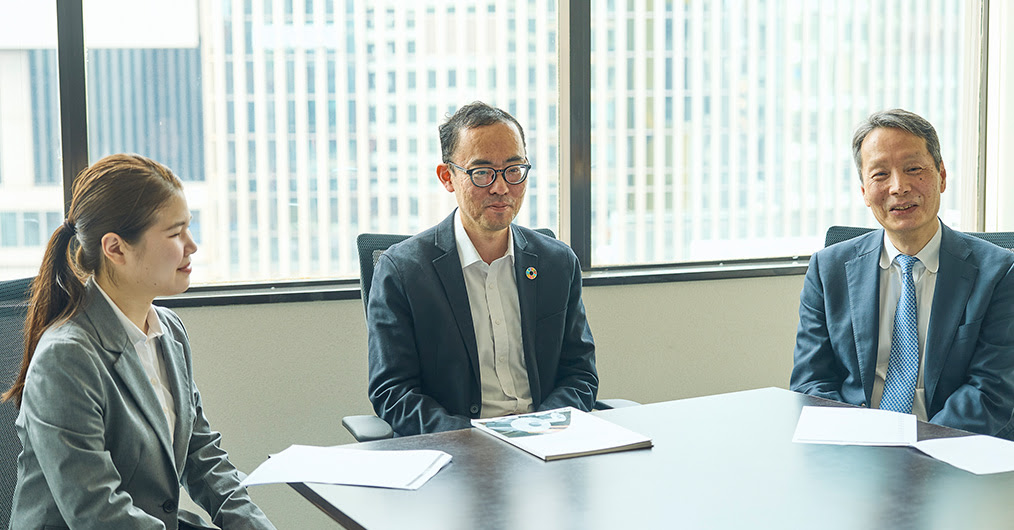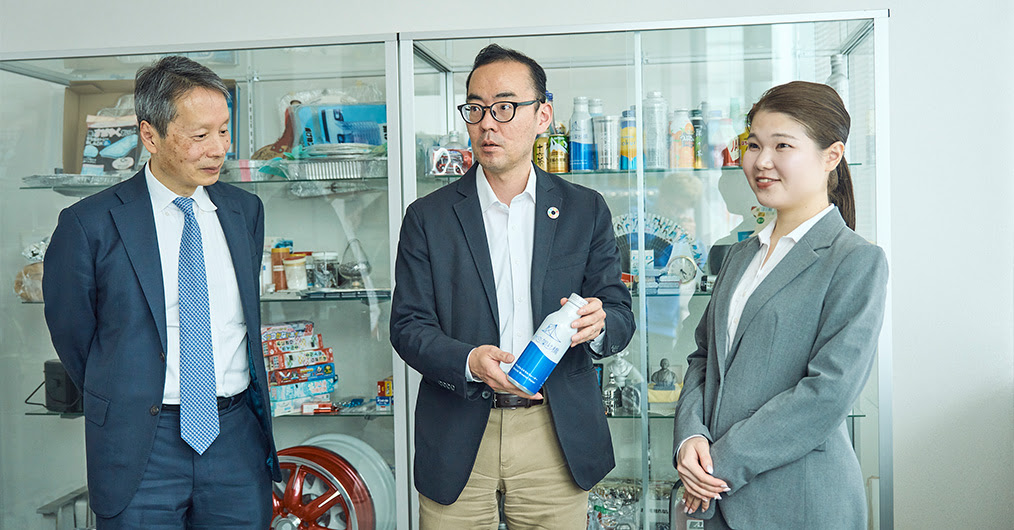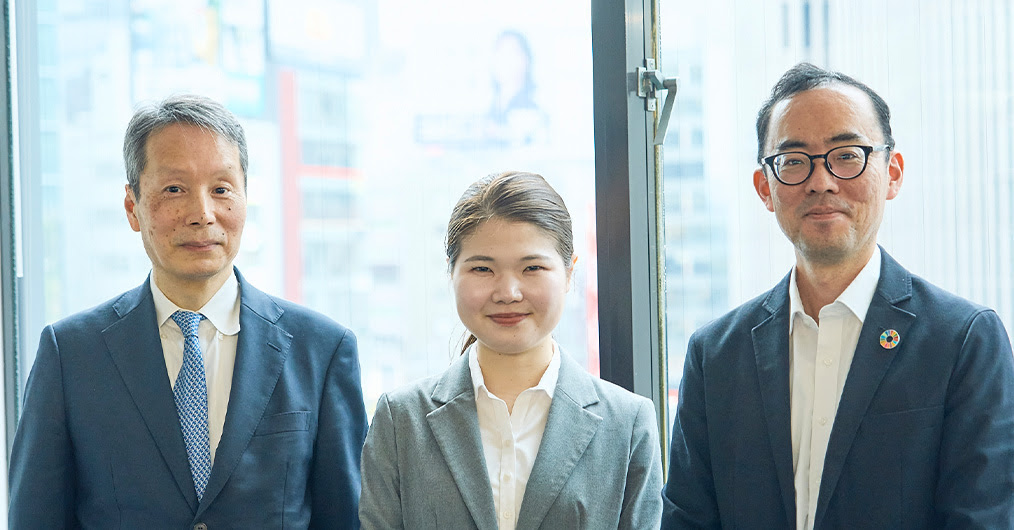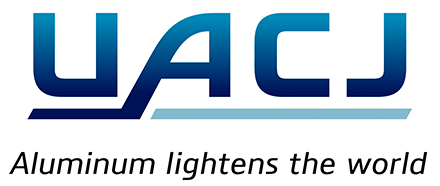RESEARCH
Compare. Discover. Be convinced!
Exploring the World of Aluminum in Japan and Beyond
Exploring the World of Aluminum in Japan and Beyond

Featuring
Yasushi Noto, Executive Director, Japan Aluminium Association

Featuring
Kenji Nose, UACJ

Interviewer
Izumi Suzuki, UACJ
Is aluminum a material full of limitless potential!? To uncover its secrets, I—Suzuki, a new employee at UACJ Corporation—paid a visit to the Japan Aluminium Association. I set out to ask all the questions I had about the state of aluminum in Japan and around the world!

What is the Japan Aluminium Association?

It’s an industry organization made up of companies and groups involved in Japan’s aluminum industry. Its mission is to support the healthy development of the industry through wide-ranging activities such as market research and statistics, standardization efforts, policy proposals and government relations, and promoting environmental awareness and recycling.


Stepping out of the UACJ Corporation office, I’ve arrived at the Japan Aluminium Association!
What kind of stories will we hear today? Let’s get this interview started!
What kind of stories will we hear today? Let’s get this interview started!
What is the role of the Japan Aluminium Association?

Noto
Our main role is to promote the overall development of the aluminum industry. To achieve that, we conduct industry research, submit proposals and requests to government bodies like the Ministry of the Environment and the Ministry of Economy, Trade and Industry, carry out public outreach to raise awareness about aluminum, and even give presentations at international conferences.

Suzuki
Wow, you’re involved in so many different things! Come to think of it, Mr. Nose, didn’t you go on a business trip to London recently in connection with the Association?

Nose
Yes, I attended the Global Aluminium Can Sustainability Summit held in October 2024 together with Mr. Noto. Actually, while I’m an employee of UACJ Corporation, I also work with the Aluminium Association. Look! [Shows two business cards]
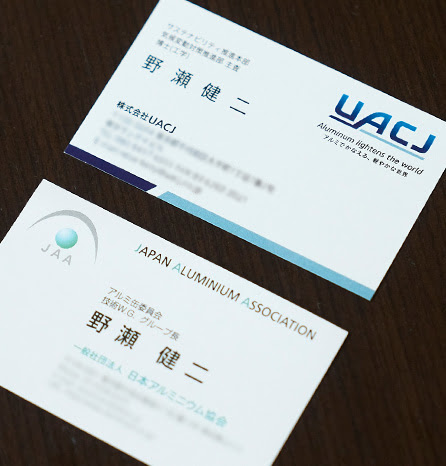

Suzuki
Oh, you really do!

Noto
At these international conferences, you’ll find participants from aluminum-related organizations, beverage brand owners, and can manufacturers from around the world—basically, all sorts of people involved in aluminum.

Suzuki
A global gathering of aluminum experts… that must be really impressive!

Nose
Despite the scale, it’s actually quite relaxed. Representatives give presentations, but there’s also time to chat casually over light refreshments during breaks. The atmosphere is pretty open.
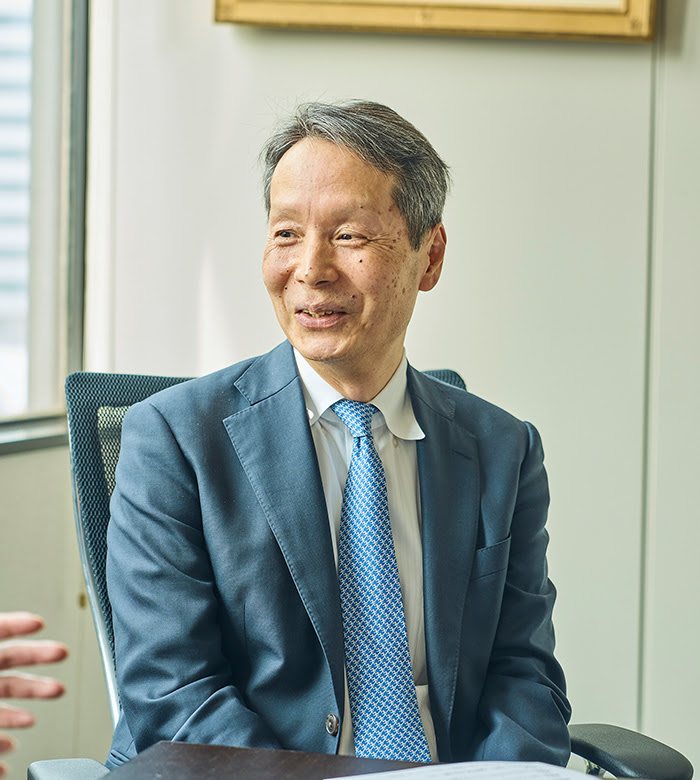

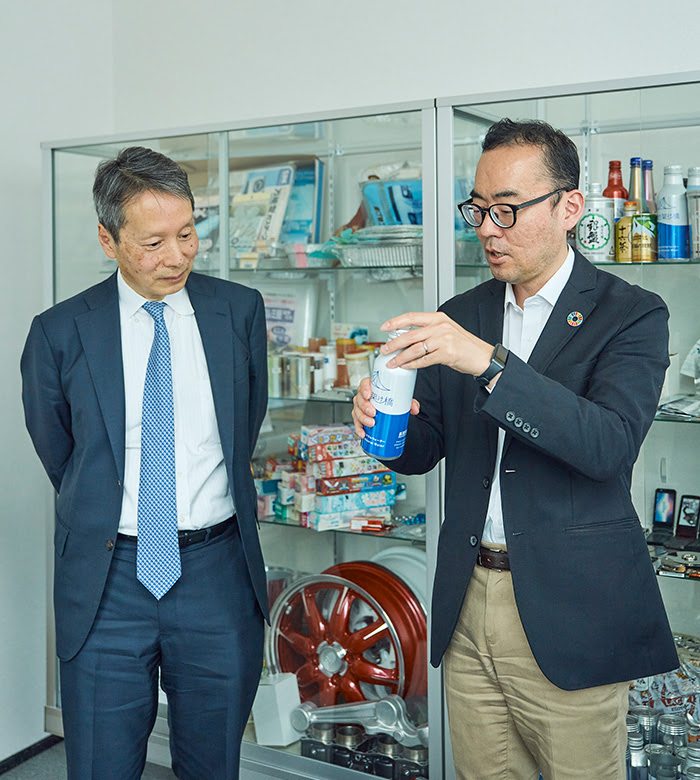
How valuable is aluminum, really?

Nose
Aluminum is about 450 yen per kilogram (as of the time of the interview). For comparison, other metals like steel, depending on the type, is only about one-third to one-quarter the price of aluminum.

Noto
What makes aluminum truly impressive isn’t just its price, but the fact that it’s a sustainable material. That’s what gives it added value.
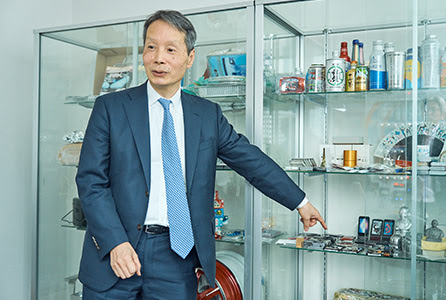

Suzuki
Aluminum is sustainable and highly valuable…? Why is that?

Noto
One major reason is how easily it can be recycled compared to other metals. You can simply melt it down and reuse it as aluminum. Since it requires very little energy to recycle, the environmental impact is low, and its value holds up well over time.

Nose
Producing aluminum from scratch actually takes a huge amount of energy. For example, making just 1 kg of aluminum consumes roughly the same amount of electricity a household uses in a day. But if you recycle it, the energy needed drops to about 1/30 of that.

Suzuki
Wait, just one-thirtieth!? That’s amazing!

Nose
On top of that, once it’s made, aluminum can be recycled over and over again—essentially forever. In that sense, you could call it a virtually everlasting material.
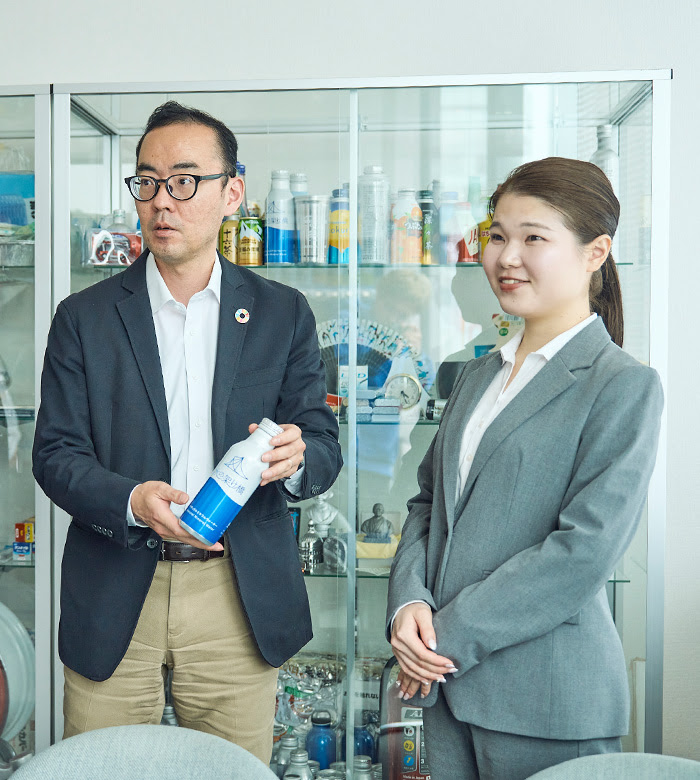
What challenges is the aluminum industry facing?

Noto
From what I’ve heard at international conferences, many countries are struggling with how to better communicate with consumers. I believe there’s still a need to better communicate aluminum’s appeal to the general public.

Suzuki
So what are some of aluminum’s lesser-known qualities?

Nose
Aluminum cans are highly airtight and block ultraviolet rays, which makes them excellent for long-term storage. In fact, water stored in aluminum cans can reportedly last for over ten years in emergency stockpiles. UACJ’s first product, “Mizu no Kakehashi”—a long-shelf-life aluminum bottle can by UACJ—takes advantage of those very properties.

Suzuki
Over ten years? That’s incredible!
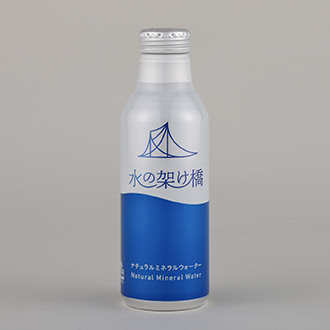

Noto
Another great thing about aluminum is that it’s lightweight yet highly durable—and it doesn’t rust easily. That’s why all Tokyo Metro subway cars are made of aluminum. It’s also used in power transmission lines.

Suzuki
I guess many people still don’t realize how versatile aluminum is as a material.

Noto
Another key issue in Japan is figuring out how to improve domestic recycling loops.

Nose
The aluminum collected in Japan is of very high quality and is in demand overseas. So when that valuable aluminum gets exported, it feels like a missed opportunity. Finding ways to keep it circulating within Japan is going to be a critical point moving forward.
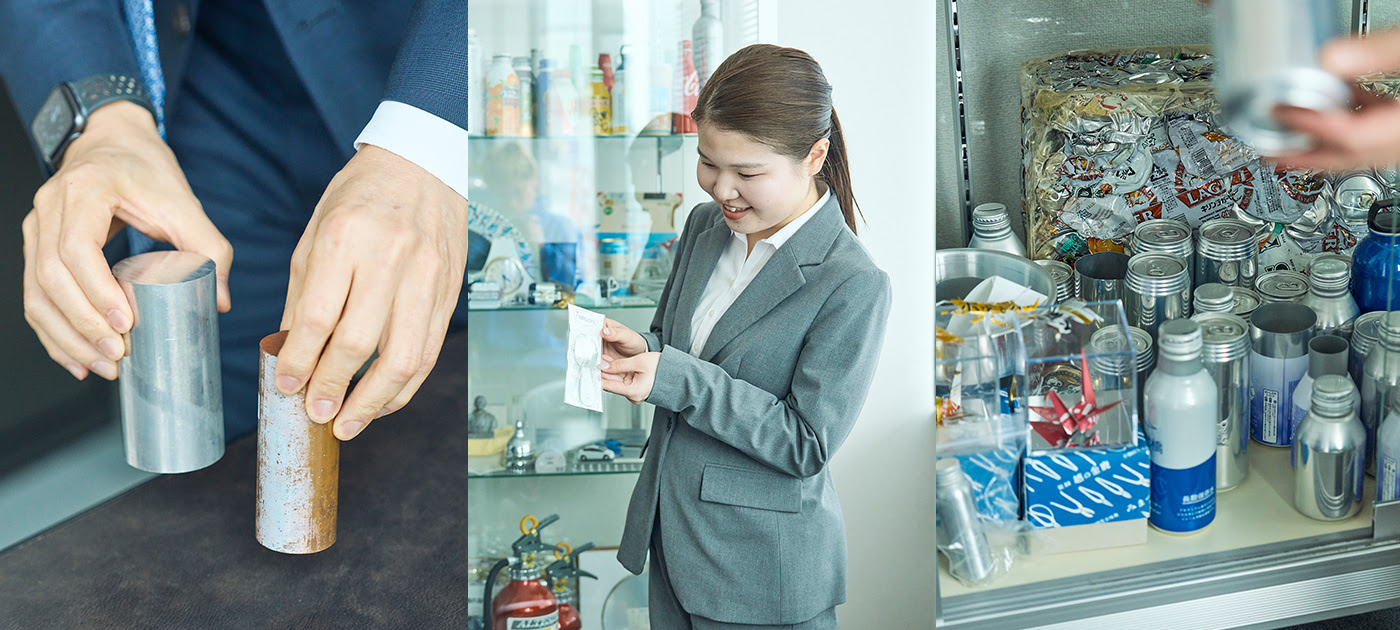
What is Japan’s aluminum can recycling rate?

Noto
Japan’s aluminum can recycling rate is currently around 95%. Globally, that puts us fourth—behind Brazil, Germany, and Finland.

Suzuki
So if 99% puts Japan in fourth place, that means the top countries must be close to 100%, right?

Nose
Exactly. In contrast, the recycling rate in the U.S. is about 40%. Because the country is so large, collection efficiency is low. Plus, many areas lack proper recycling infrastructure, topso the recycling rate remains relatively low.

Suzuki
What do the top-ranking countries have in common?

Noto
In many advanced European countries, high recycling rates may stem from strong environmental awareness. It’s also worth noting that many of these countries have national-level policies, regulations, and laws in place.

Suzuki
I see—so these efforts often involve a top-down approach.
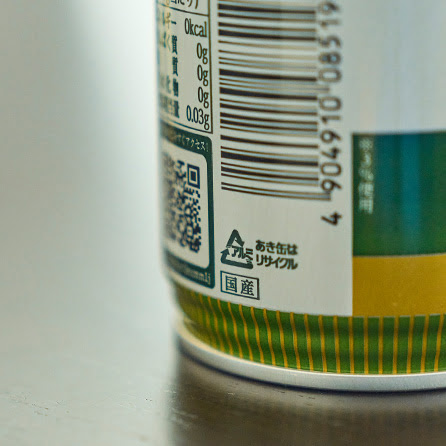
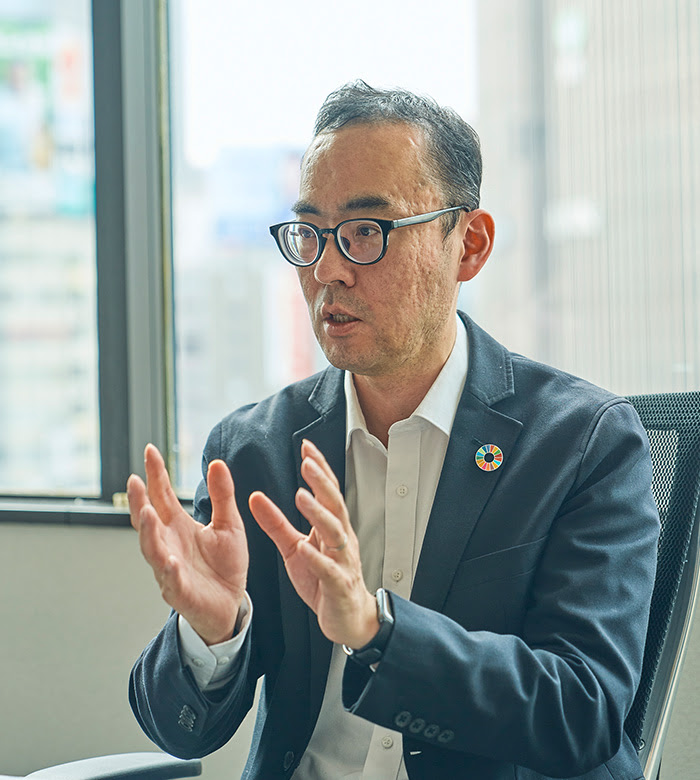
What kinds of recycling systems are used around the world?

Noto
There are several, but two of the most common are the Extended Producer Responsibility (EPR) system, where manufacturers like beverage companies take full responsibility for collection and recycling, and the deposit system.

Suzuki
So do penalties and incentives actually raise people’s awareness of recycling?


Nose
That seems to be the case. At one international conference, they shared a success story from Romania—after introducing a deposit system, their recycling rate jumped from 50–60% to over 90% in just a few months.

Suzuki
Wow, that’s impressive! Does Brazil, the country with the highest recycling rate, also use a deposit system?

Nose
Brazil is a unique case—it doesn’t follow Extended Producer Responsibility or mandatory consumer participation. Instead, collection happens through a very different, unconventional system.

Suzuki
“Special groups”? What do you mean?

Nose
Some refer to these as informal organizations. While Brazil boasts a 100% recycling rate, there’s room to improve so that the work is carried out in a safer, more professional manner with proper attention to human rights and social ethics.

Suzuki
I see... it’s interesting to learn about how different countries handle aluminum recycling.


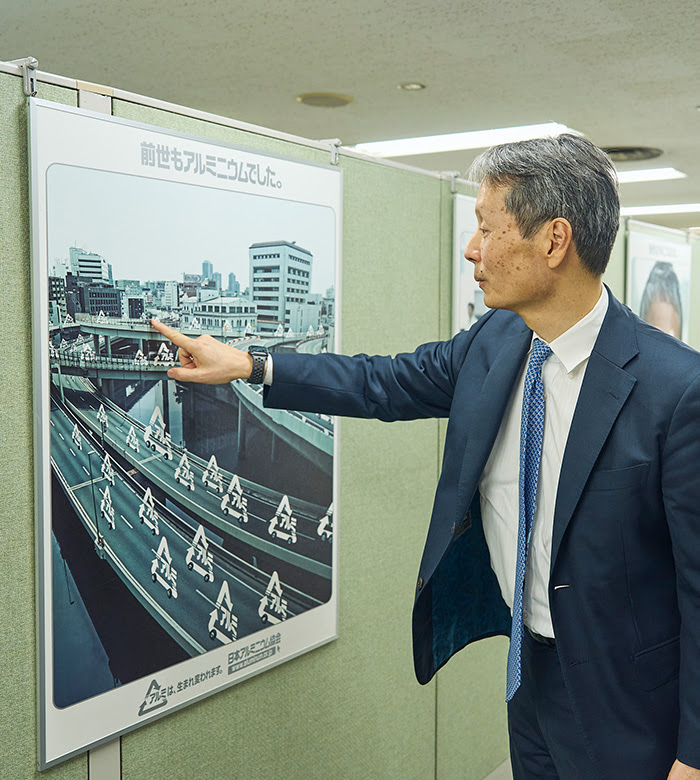
What’s the secret behind Japan’s high recycling rate?

Nose
When it comes to aluminum can recycling, Japan is quite unique on the global stage. What really supports our high recycling rate is the voluntary action of consumers—mainly through municipal collection systems and trash bins near vending machines.

Suzuki
So people just do it on their own?

Noto
Exactly. It’s not just municipalities—collection is also handled by elementary schools, neighborhood associations, apartment building management groups, and other community-based volunteer organizations.
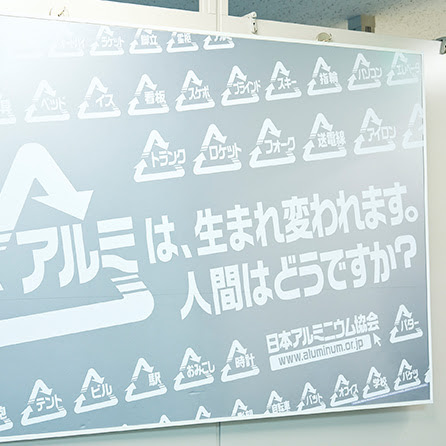

Nose
Suzuki-san, did you ever help out with garbage collection in your neighborhood when you were a kid?

Suzuki
Hmm, I don’t think I ever did.

Nose
Back when I was growing up, local kids’ clubs would often help out with recycling collection.

Suzuki
Wow, I had no idea. How is Japan’s recycling system viewed overseas?

Nose
People are genuinely surprised that such a large-scale collection effort can happen purely through volunteerism. When we show photos of schoolchildren collecting cans and say, “Don’t worry, this isn’t child labor,” it always gets a laugh. (laughs)
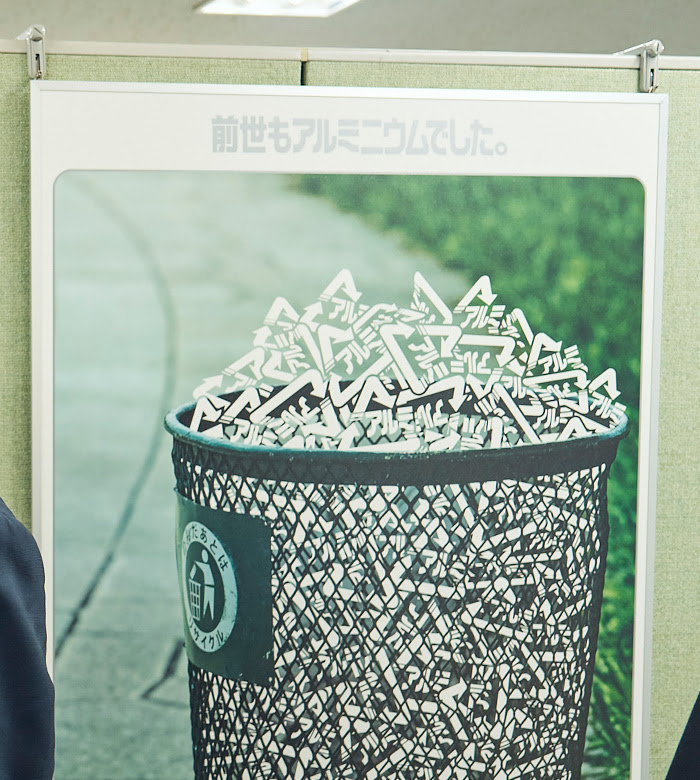
Why does volunteerism work so well in Japan?

Noto
If I had to sum it up in one word, I’d say “culture.” Japan has very strong local communities, and that sense of community plays a big role in sustaining our high recycling rates.

Nose
I think our national character also plays a part.
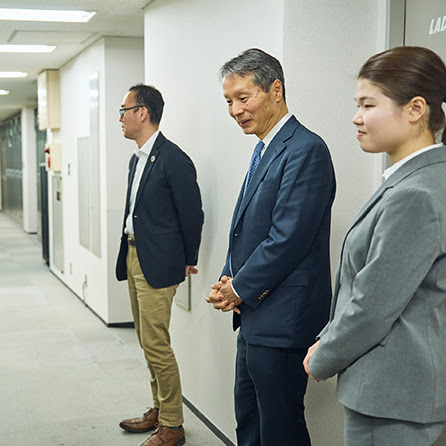

Suzuki
That makes sense. Japanese people are often described as diligent and conscientious. Even in everyday life, I feel like I’m always aware someone might be watching.

Noto
That mindset of being considerate toward others is definitely a strength. Personally, if I try to toss out an aluminum can or PET bottle at home the wrong way, I get instantly scolded with just a glance. (laughs)

Suzuki
Seeing how high Japan’s recycling rate is—even without strong laws, penalties, or incentives—it really is something to be proud of.
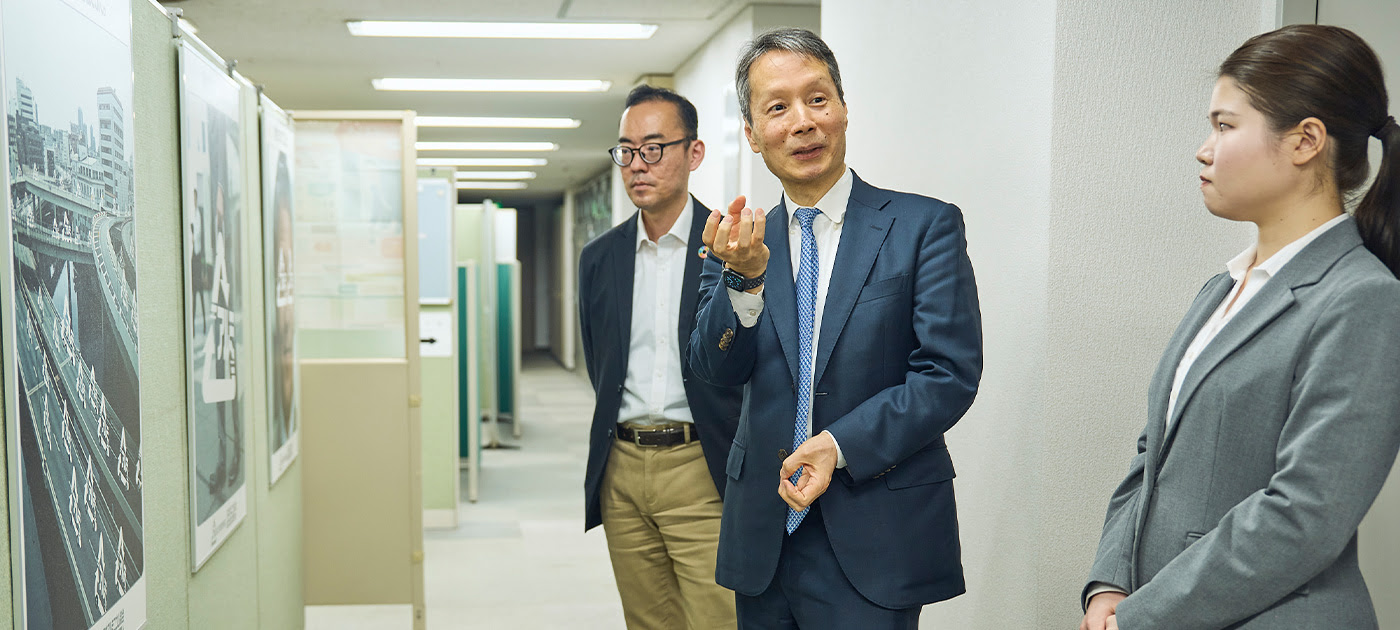
Are there any unique recycling initiatives in other countries?

Nose
In Europe, for example, there are campaigns to promote aluminum can recycling at large music festivals, or projects where collected cans are turned into public art. These kinds of initiatives make recycling more engaging and relatable for consumers.

Suzuki
That sounds really interesting! You know, I was just thinking—if Japan introduced a deposit system, wouldn’t the recycling rate get close to 100%?

Noto
That’s a great point. In fact, Japan did consider introducing a deposit system in the past. But ultimately, the decision was made not to implement it.

Suzuki
Why was that?

Noto
One downside is that it would increase product prices. When a deposit fee is added to beverages and people don’t return the containers, they lose that money—so ultimately, the burden falls on the consumers.

Suzuki
I see. So just having a system in place doesn’t automatically raise the recycling rate. It sounds like we still have some big challenges ahead before we can reach 100%.

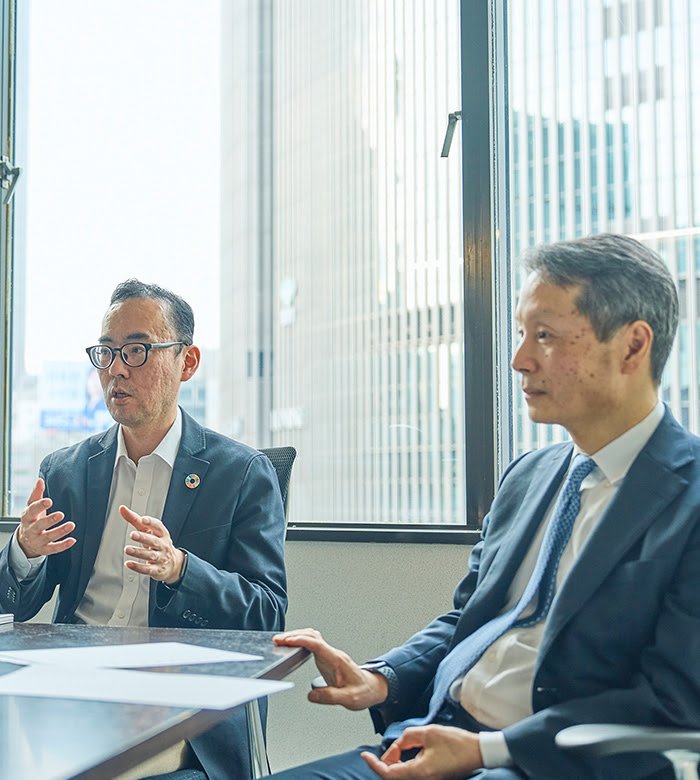
So, what does the future look like for aluminum?

Noto
Aluminum is a material full of limitless potential. I believe we’ll see it used in even more industries going forward. Its applications in areas like vehicle weight reduction and energy efficiency will continue to expand, helping to reduce environmental impact.

Nose
Aluminum’s like that honest, easygoing friend—always dependable and never complicated.

Suzuki
That makes aluminum feel so much more relatable—almost like it has a personality! (laughs)
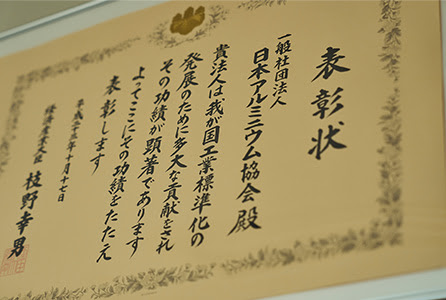

Nose
But it’s true. It’s simple, yet has incredible properties. That’s why maintaining a high recycling rate by making the most of those strengths will continue to be a key goal. And for that, consumer understanding and cooperation are absolutely essential.

Noto
At the Japan Aluminium Association, we’ve been conducting local outreach and educational activities for many years—like hosting factory tours for middle and high school students. We plan to continue initiatives like these going forward.

Suzuki
Do you think it will ever be possible to achieve 100% recycling of aluminum produced in Japan?

Noto
Right now, can lids and bodies are made from different alloys. When those are mixed, it becomes difficult to achieve complete recycling.

Nose
As we speak, new technologies are being developed to make can lids from alloys that are easier to recycle. These products are expected to hit the market soon. Once that happens, aluminum cans could become fully recyclable.

Suzuki
So we might really see 100% recycling in the not-so-distant future. As a member of UACJ Corporation, I’ve learned a lot from today’s conversation. I’ll keep learning more about aluminum—thank you very much for your time today!

Noto

Nose
Thank you!
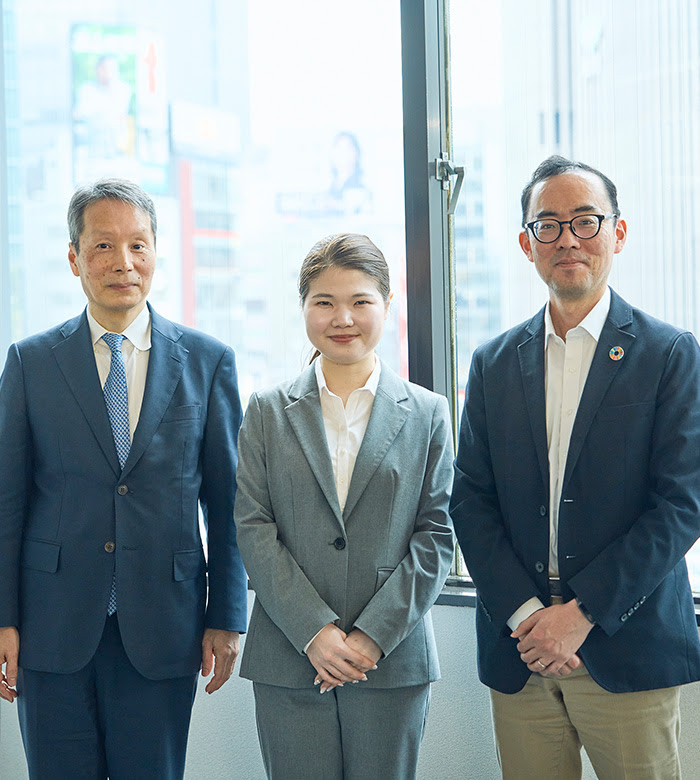


AFTER INTERVIEW

Izumi Suzuki, UACJ
This interview reminded me of the incredible potential of aluminum. Even while focusing on just one topic—aluminum recycling—I still got glimpses of the cultural differences between Japan and other countries. I found the entire conversation truly fascinating. As a member of UACJ, I hope to keep broadening my perspective on aluminum and become someone who’s always thinking, “What can I do to help?”
Profile
Now in my second year at the company, I’m a food lover who’s recently become obsessed with the combo of canned beer and gyoza. I'm currently experimenting to see how I can make that “psshh” sound when opening a can as loud and refreshing as possible!

Kenji Nose, UACJ
It was a pleasure to join Mr. Noto, Executive Director, Japan Aluminium Association, in answering all of Suzuki-san’s great questions. This conversation reminded me that Japan’s “GRUTTO” spirit—a circular, sustainable mindset—is really supported by the awareness and actions of each individual. Making a small extra effort, even when it’s a bit inconvenient, is key to sustainability. I hope this interview helps everyone at UACJ Corporation see how their daily work contributes to that circular system. Looking forward to crossing paths again sometime!
Profile
I work in the Environmental Sustainability Department. Lately, I’ve been into canned wine from convenience stores—especially sparkling varieties, chilled nice and sharp. There’s just something about enjoying them straight from the can!
* The information in this article was current at the time of the interview.


